Where are the riots in France and why are they happening?
The shooting of the 17-year-old teenager has sparked outrage in a number of cities
Your support helps us to tell the story
From reproductive rights to climate change to Big Tech, The Independent is on the ground when the story is developing. Whether it's investigating the financials of Elon Musk's pro-Trump PAC or producing our latest documentary, 'The A Word', which shines a light on the American women fighting for reproductive rights, we know how important it is to parse out the facts from the messaging.
At such a critical moment in US history, we need reporters on the ground. Your donation allows us to keep sending journalists to speak to both sides of the story.
The Independent is trusted by Americans across the entire political spectrum. And unlike many other quality news outlets, we choose not to lock Americans out of our reporting and analysis with paywalls. We believe quality journalism should be available to everyone, paid for by those who can afford it.
Your support makes all the difference.France has endured a sixth night of violence following an emotional weekend when mourners gathered for the funeral of a teenager whose killing by police sparked nationwide unrest.
Nahel Merzouk was laid to rest in the Paris suburb of Nanterre, where the 17-year-old had been shot dead by a police officer during a traffic stop on Tuesday, triggering days of fierce clashes.
More than 700 people were arrested following the funeral on Saturday as police fired tear gas and fought street battles with protestors late into the night in flashpoint Marseilles.
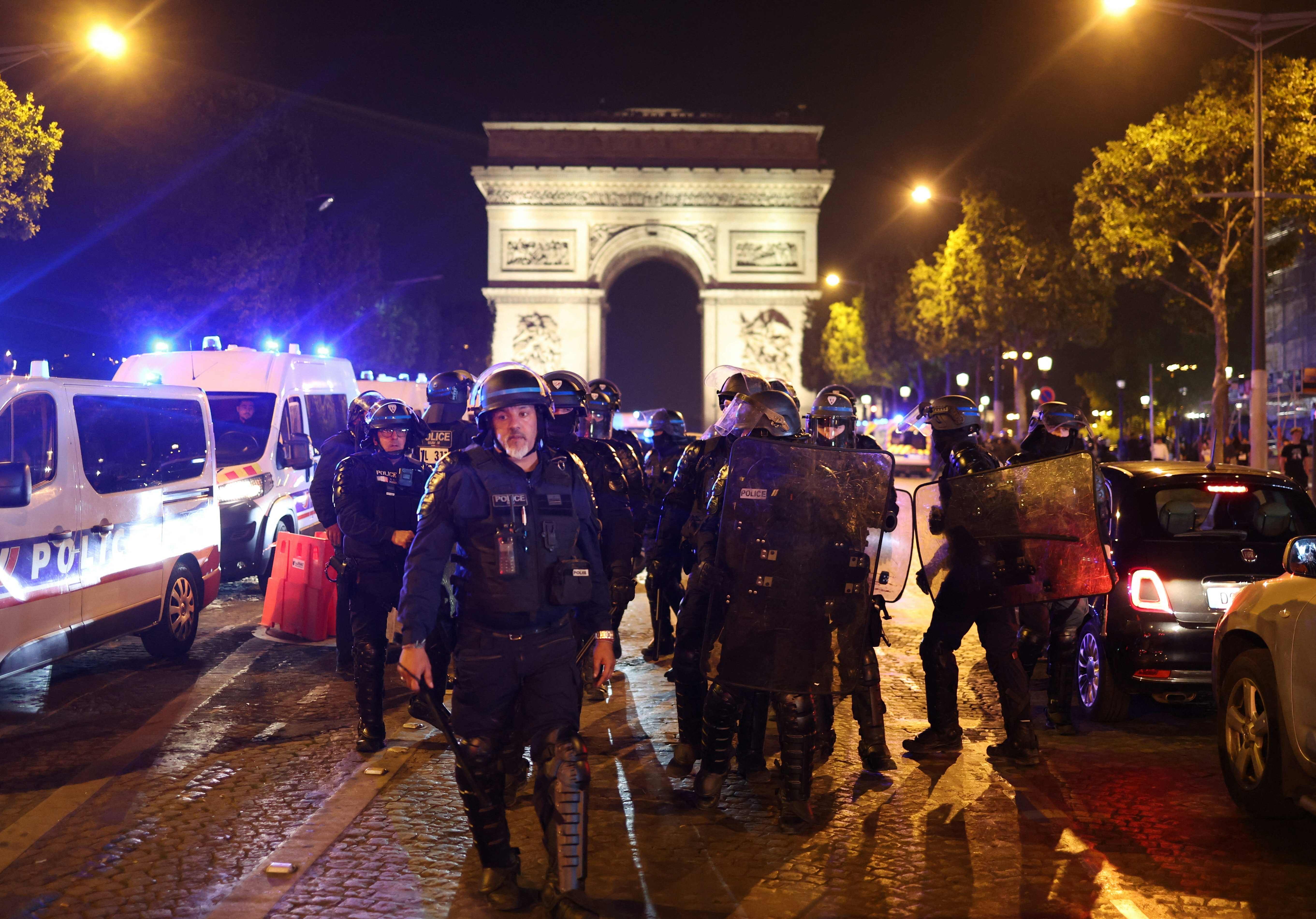
According to the interior ministry, 78 arrests were made nationwide on Sunday - a sharp drop from the previous 24 hours which took the total to more than 3,000,
Below we look at what led up to nearly a week of chaos on France’s streets.
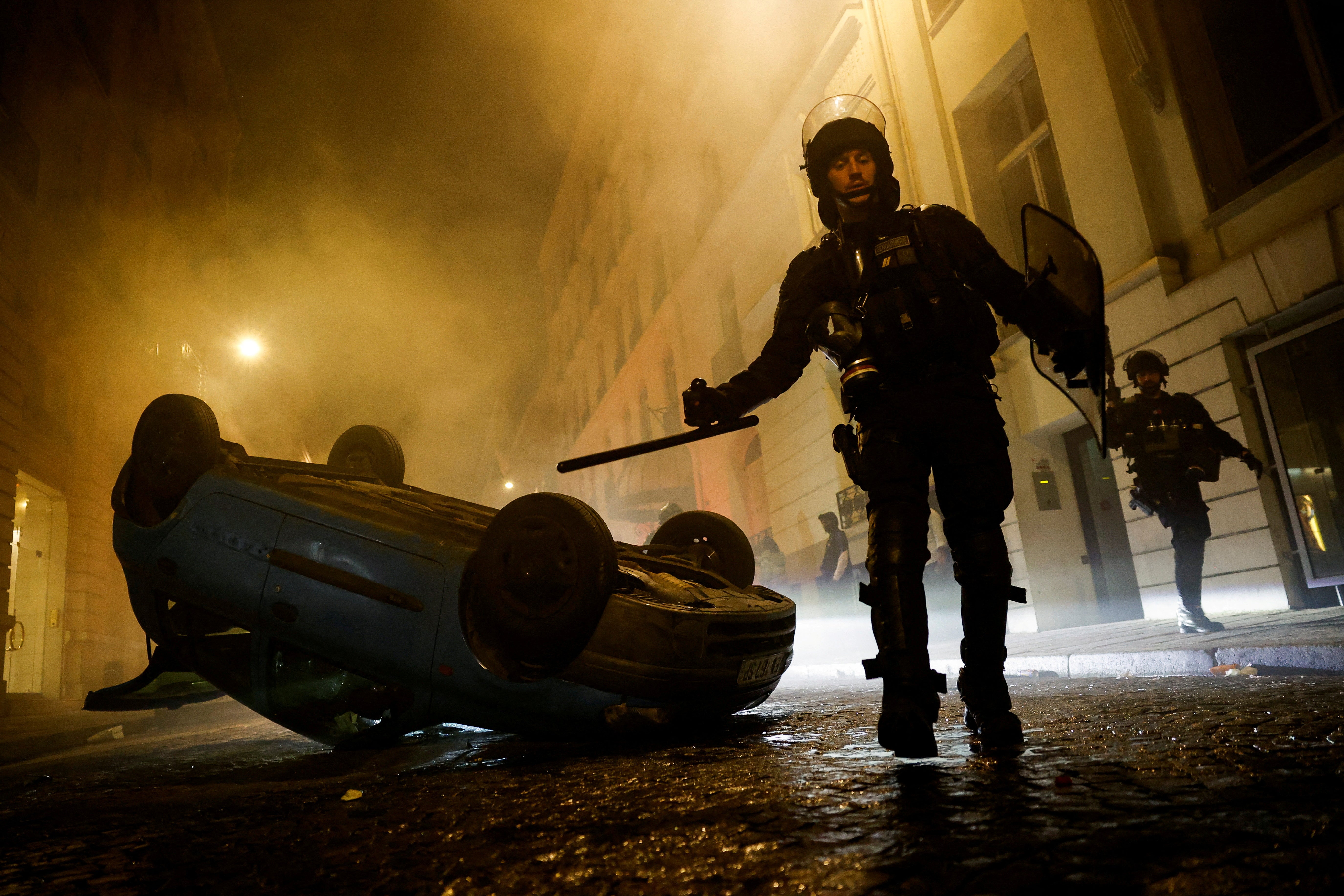
What happened during the shooting?
The 17-year-old victim, Nahel Merzouk, was driving a car on Tuesday morning when he was pulled over for breaking traffic rules, prosecutors said. The teenager was too young to hold a full driving license in France.
Police initially reported that one officer had shot at the teenager because he was driving his car towards him. But this version of events was quickly contradicted by a video circulating on social media.
On Thursday, The Nanterre prosecutor said that witness statements, CCTV video footage, amateur video footage, and statements from police offers were being used to piece together the timeline of events from Tuesday morning.
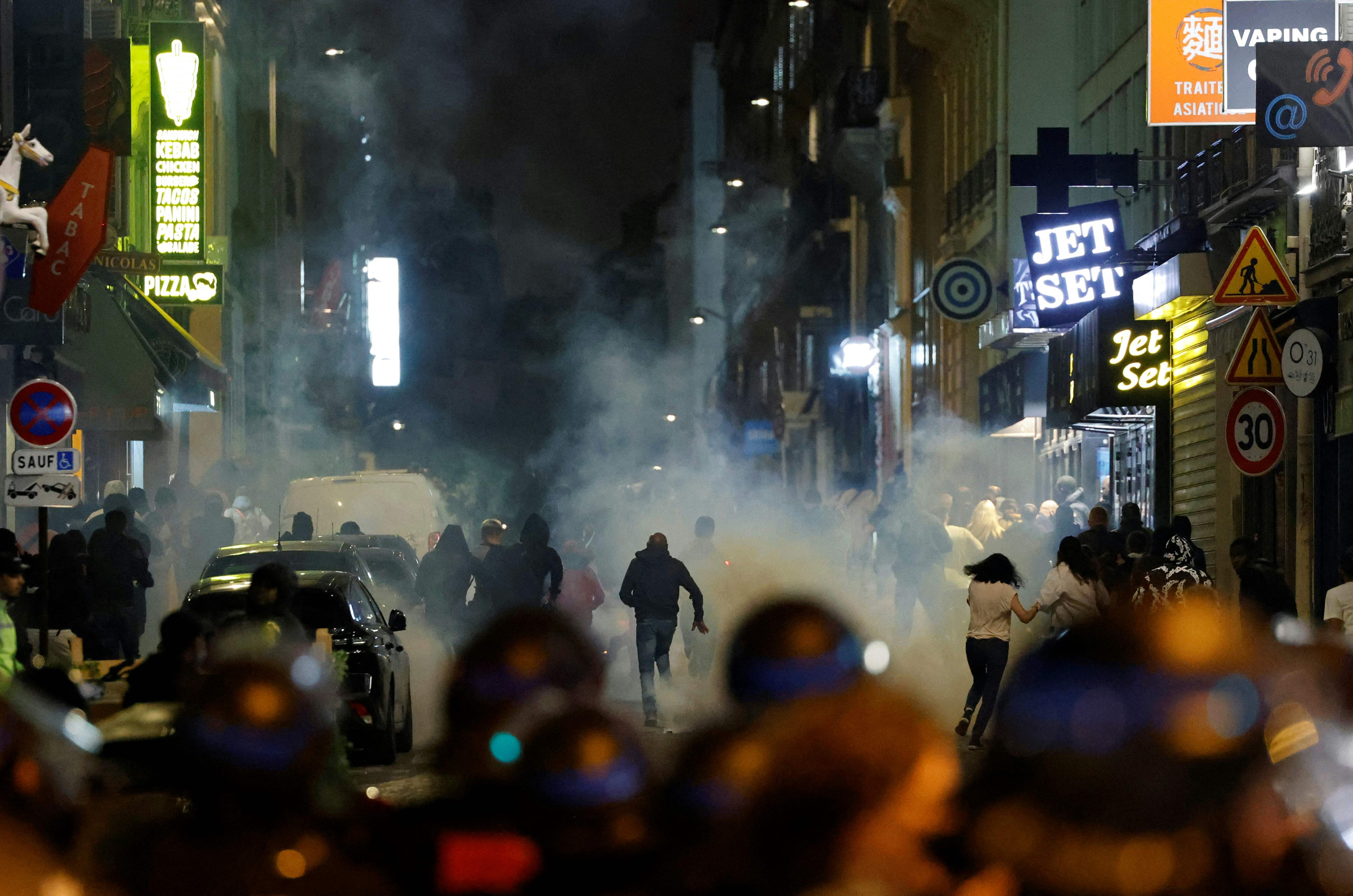
Pascal Prache confirmed that two motorcycle police noticed a Mercedes, with one young driver and two passengers travelling quickly in a bus lane at 7.55am on Tuesday.
Police twice attempted to indicate to the car to pull over and park, but the driver continued driving and the two police pursued the vehicle.
The Mercedes had to stop at a traffic light, at which point the police asked the driver to turn off engine and exit the vehicle.
The police officers said they drew their weapons and aimed them at the driver to stop him from taking off in the vehicle. However, the driver did pull away at which point the police decided to shoot.
A bullet hit the driver through arm and chest, and the car crashed. One of the passengers fled. Firefighters were called to the scene at 8.21am. They provided first aid to the driver which was unsuccessful.
The officer who fired a single shot said he wanted to prevent the car from leaving and because he feared someone may be hit by the car, including himself or his colleague, according to Mr Prache.
The police officer faces preliminary charges of voluntary homicide for shooting Nahel.
Based on an initial investigation, the prosecutor Mr Prache said, he concluded that "the conditions for the legal use of the weapon were not met."

How did the riots begin?
Nahel was of North African descent. The incident has fed longstanding complaints of police violence and systemic racism inside law enforcement agencies from rights groups and within the ethnically diverse suburbs that ring major cities in France.
Several people have died or sustained injuries at the hands of French police in recent years, prompting demands for more accountability. France also saw protests against racial profiling and other injustice in the wake of George Floyd’s killing by police in Minnesota.
Tuesday’s killing was the third fatal shooting during traffic stops in France so far in 2023. Last year there were a record 13 such shootings, a spokesperson for the national police said.

There were three such killings in 2021 and two in 2020 and the majority of victims since 2017 were Black or of Arab origin.
Clashes first erupted Tuesday night in and around the Paris suburb of Nanterre, where Nahel was killed. Bins were set alight and some protesters threw fireworks at police. Officers used tear gas on the crowds. The government deployed 2,000 police to maintain order Wednesday. But violence resumed after dusk.
How far have the riots spread?
The clashes between police and protestors spread across the country throughout the week. The national police have reported fires or skirmishes in multiple cities, from Toulouse in the south to Lille in the north, though the nexus of tensions was Nanterre and other Paris suburbs.
Macron’s government deployed 40,000 officers on Thursday, when 875 people were arrested. An additional 5,000 officers were mobilised on Friday night, with more than 1,300 arrests being made - the highest figure over one night so far.

Saturday brought the fifth consecutive night of nationwide violence and 700 more arrests. Some 45,000 police were on the streets with specialised elite units, armoured vehicles and helicopters brought in to reinforce its three largest cities, Paris, Lyon, and Marseille. However, the rioting appeared to be less intense, with Darmanin attributing that to "the resolute action of security forces."
More than 3,000 people have been detained overall since Nahel's death. Hundreds of police and firefighters have been injured in the violence, although authorities haven’t said how many protesters have been hurt.
The unrest has revived memories of riots in 2005 that convulsed France for three weeks and forced then-president Jacques Chirac to declare a state of emergency.
That wave of violence erupted in the Paris suburb of Clichy-sous-Bois and spread across the country following the death of two young people electrocuted in a power substation as they hid from police.
Two officers were acquitted in a trial ten years later.
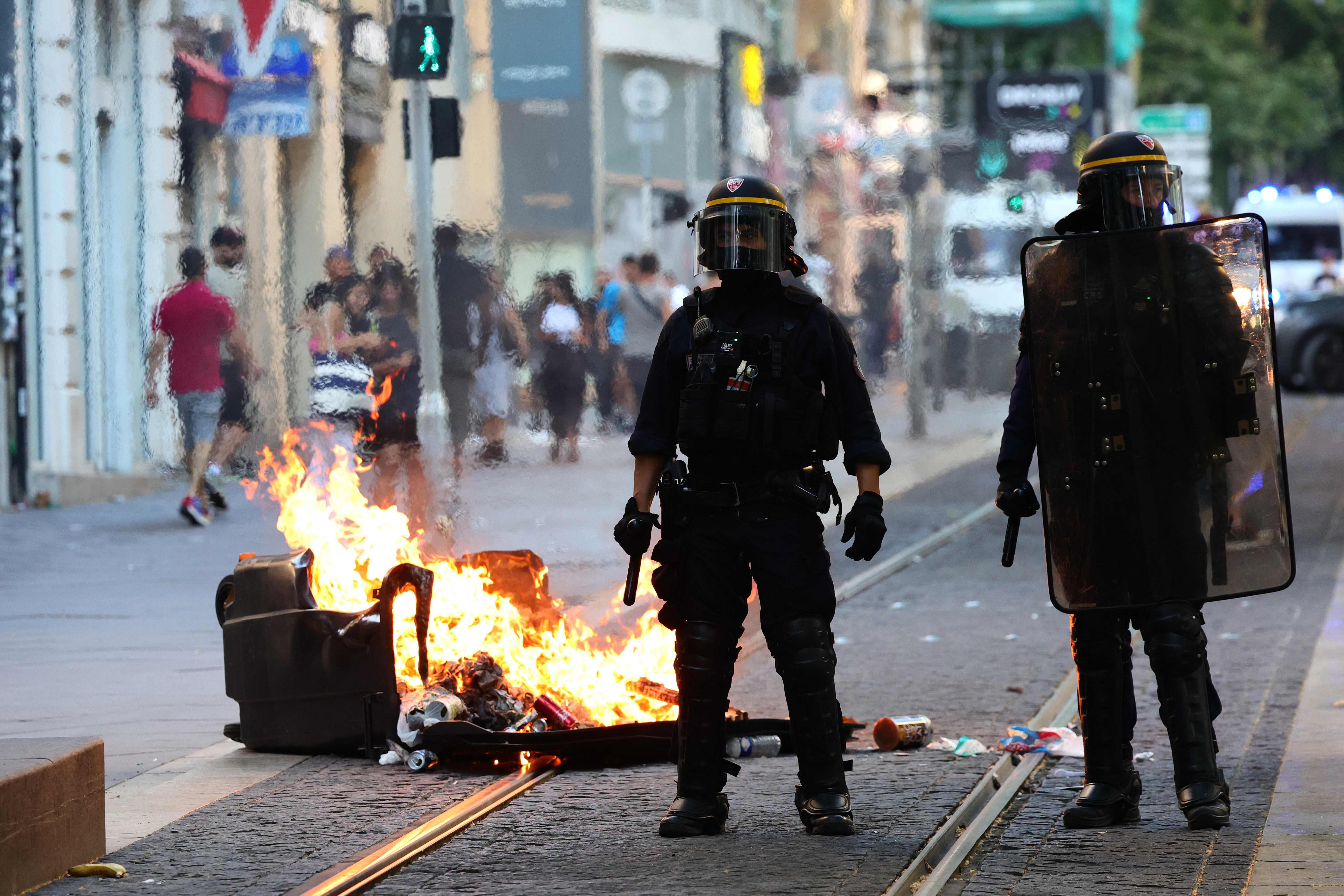
What has been the response from the government?
President Emmanuel Macron held a crisis meeting with senior ministers over the shooting on Friday morning – the second in two days.
The French government has so far stopped short of declaring a state of emergency — a measure taken to quell weeks of rioting around France that followed the accidental death of two boys fleeing police in 2005.
Mr Darmanin said the Interior Ministry had issued instructions for the complete shutdown of all public bus and tram services before sunset on Friday.
Concerts at the national stadium and smaller events around the country were canceled because of the violence and some neighborhoods suffered serious damage. Among the cancelled events were concerts at the Stade de France by singer-songwriter Mylene Farmer, scheduled for Friday and Saturday night.
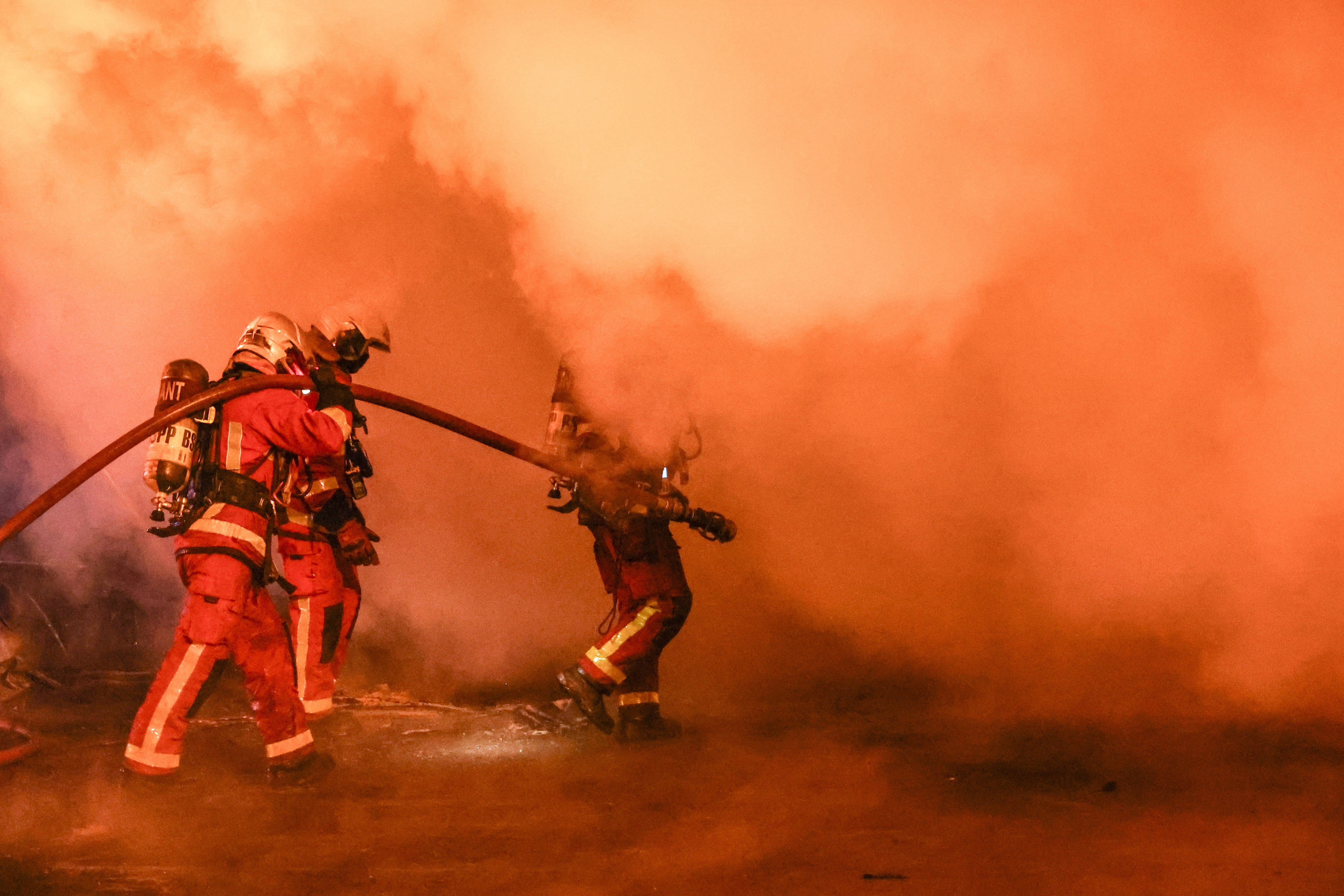
In the southern city of Marseille, France's second-largest, authorities banned public demonstrations set for Friday, and encouraged restaurants to close outdoor eating areas early. They said all public transport would stop at 7pm.
Mr Darmanin also ordered a ban on the sale and carrying of powerful fireworks, which rioters have launched at police officers and buildings, as well as on the sale of canisters of gasoline, acids and other chemicals and flammable liquids, the ministry said.
On Saturday, Justice Minister Eric Dupond-Moretti warned that young people who share calls for violence on Snapchat or other apps could face prosecution. Macron has blamed social media for fueling violence.
The crisis has posed a new challenge to Macron’s leadership and exposed deep-seated discontent in low-income neighborhoods over discrimination and lack of opportunity.
The unrest has taken a toll on Macron’s diplomatic standing. On Saturday, a day before he was scheduled to depart, he postponed what would have been the first state visit to Germany by a French president in 23 years.
Following the attack on Mayor Vincent Jeanbrun’s home, Macron planned to hold a special security meeting Sunday evening with Borne, Darmanin and the justice minister.



Join our commenting forum
Join thought-provoking conversations, follow other Independent readers and see their replies
Comments